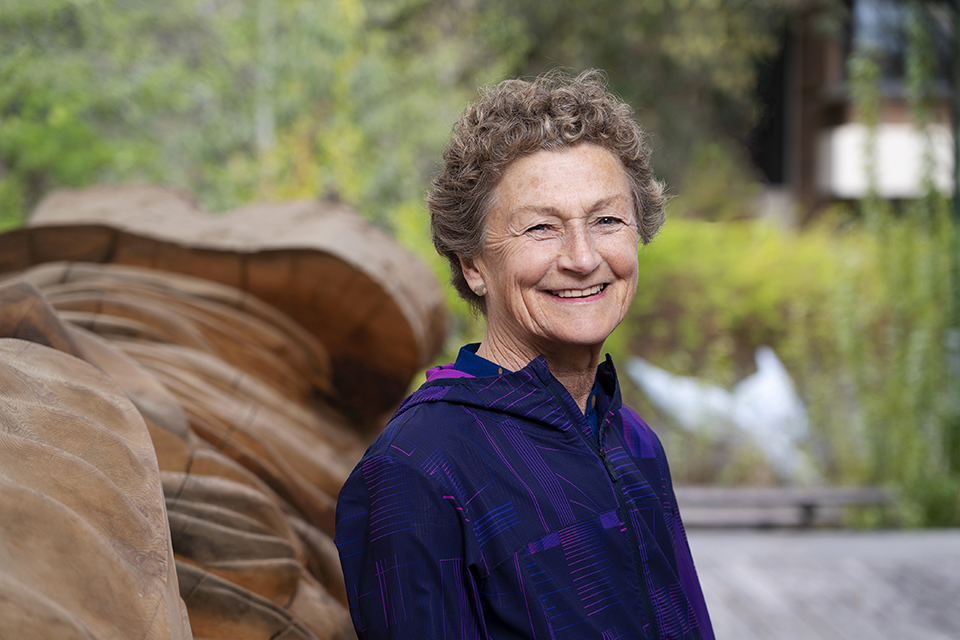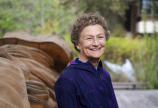Molson Prize for sociologist's advocacy
- Richard Dal Monte

Cecilia Benoit wins prestigious Molson Prize for the Social Sciences and Humanities
She has worked with, learned from and spoken up for midwives and sex workers, Indigenous women on Vancouver’s Downtown Eastside, unhoused people and people who use illicit drugs.
She has published hundreds of research papers and dozens of books.
She has testified before the Supreme Court of Canada as an expert witness.
And through a lifetime in academia and advocacy, Cecilia Benoit, who as a rebellious teenager resisted her father’s entreaties that she enter a nunnery, has displayed a fervent dedication to groups often marginalized in Canadian society.
For a career marked by empathy, curiosity and scholarly rigour, Benoit, a researcher with the Canadian Institute of Substance Use Research at the University of Victoria, was recently awarded the 2022 Canada Council for the Arts Molson Prize for the Social Sciences and Humanities.
‘Pioneering research’ lauded
“For more than three decades, her pioneering research has helped to decrease gender and racial inequities while also empowering youth, women and Indigenous Peoples,” wrote Kevin Hall, UVic’s president and vice-chancellor, in his letter nominating Benoit for the award.
Hall praised her “incredible influence as an educator and mentor,” noting she has supervised 48 graduate students, many of whom have taken up leadership roles in academia as well as the public and non-profit sectors.
“Long before the topic was popular in the academy,” he wrote, “Dr. Benoit has advocated for Indigenous practices and ways of knowing in health care practices, specifically with respect to childbirth practices, midwifery and maternity care. Thanks to her diligent efforts and those of others, midwifery has become recognized as a respected and legitimate profession in Canada and the costs for new mothers and their families covered by the public purse.”
‘The social structure was unfair’
Benoit says her twin dedications—to academia and to those who society inadequately cares for and protects—come down to her childhood.
The third youngest of Joseph Benoit and Rita LaFitte’s 11 children, Benoit grew up in a poor family noticing that many people in her community worked hard but were unable to get ahead, and thinking there must be ways to make society more equitable.
Despite their limited means, her parents “did provide for us in whatever way they could and they did really stress education as being important.” Still, she could see “the social structure was unfair, the way society was put together.”
“We live in a class system, a patriarchal system and one that’s also very advantageous to people with white skin,” says Benoit, who is of Mi'kmaw and European ancestry.
Another inequity she witnessed in her younger years also proved formative: that women’s and girls’ work never ended while men’s did. Outside their formal workday, men rested while women toiled at domestic tasks without break or reward. “That stuck with me for a long time,” she says.
How to change the world?
I just got drawn to sociology because that’s where I thought I could start to figure out how I could see the world and figure out why the world is the way it is. So, developing a way of seeing and, from there, is it possible to change it?”
—Sociologist Cecilia Benoit
The first major thing she set out to change was the exclusion of midwives from the health care system. In the early to mid-1990s, she says, some politicians were interested in changing legislation to allow midwives to provide care to pregnant women and to attend births. Benoit’s doctoral and postdoctoral research—which showed the inclusion of midwifery in the Canadian health care system would create legitimate work for midwives, improve care for birthing families and be economical—changed her career.
In fact, when asked about societal changes she’s seen during her working life, she notes that 20 to 30 years ago, a person could be charged for practicing midwifery, and she calls Canada’s legalization and funding of the practice “an amazing achievement in a couple of decades.”
“And it was social science research, and a social movement of people in society, that got the government’s attention.”
Another change she has witnessed as a scientist is the expansion of support for marginalized and street-involved youth: kids who have fallen through society’s cracks. BC will soon have 19 clinics around the province providing them care. And while, as with midwifery and reproductive care, there are improvements still to be made, she says, “youth are getting better health and social care than they used to and it’s because we understand them better; we understand their situations, their challenges.”
Research partners rather than research subjects
Understanding the situations of people who need society’s care is at the core of Benoit’s work, as is this research philosophy: “think of people you interview as partners rather than subjects.”
Indeed, her research with people who sell sexual services—and a number of other topics—started with an invitation within that community to work with its members. As a result of that connection, she says, she and her colleagues conceived a project to study people involved with sex work by comparing their working conditions to those of people doing other kinds of care work: in food and beverage industries, and in hair care and barbering.
A small university news release announcing funding for this project drew an unexpected response, however: an opinion piece in a local paper saying, roughly, “how dare hardworking women be included in this study with prostitutes?” that was subsequently published across the country.
“It was very ugly. I was shocked,” she says, noting that she received hate mail. “That was my first lesson in stigma.
“From then, I had to either give it up or dig my heels in and say, ‘it’s hard research and we’re going to do it anyway.’”
Benoit says she’s glad she chose the latter and notes the subsequent research informed a challenge of Criminal Code’s approach to sex work—and resulted in her expert testimony before the Supreme Court.
While she doesn’t maintain the schedule she once did, having retired from her position as a UVic sociology professor four years ago, she still conducts research without fear or favour, and by parking any prejudice at the door.
“I guess I continue to be kind of driven by the opportunities that are available to me.”
Asked for advice for emerging researchers, she says: “try to shed light doing the best research you can on social problems in our time—problems that really need solutions but they’re not easily solved, so they need an eye that can get beneath the public debate to see what else we could know and should know.”
By the numbers
Cecilia Benoit’s work has always been about people, but the numbers associated with her life and career are notable and impressive:
- She has four degrees (two bachelors, one masters, a PhD and a post-doc).
- She has won 18 honours, awards and prizes for research and academic achievement.
- She has over 250 publications, including 21 books or monographs, 120 journal articles, 40 book chapters and 70 reports, briefs and other published writings. Since 2014 alone, she has authored 59 journal articles.

